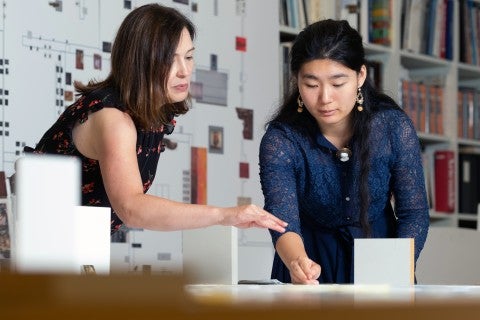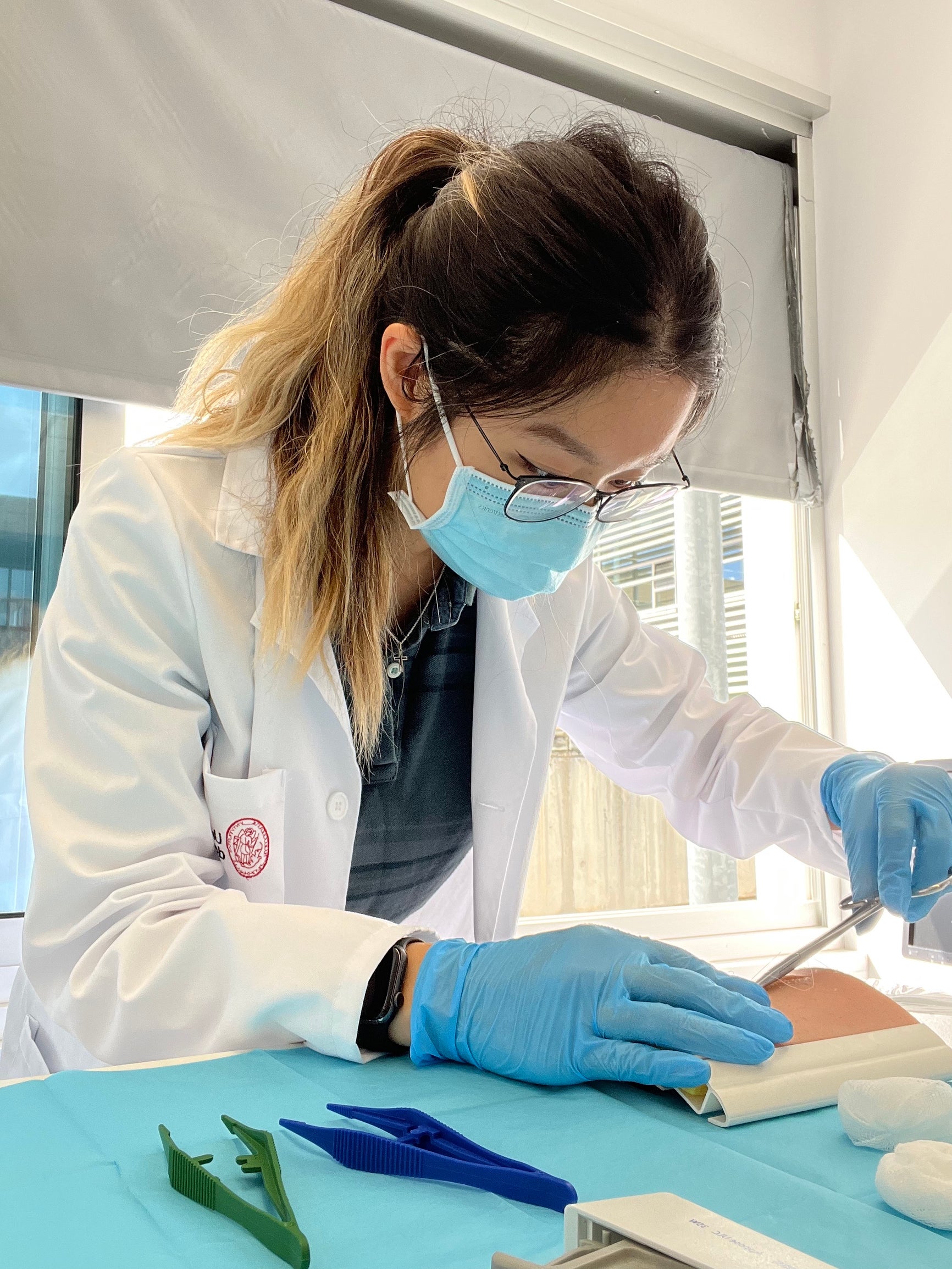Linda Wu ’23
Baker College
Majors: Study of Women, Gender and Sexuality, and Psychology
Minor: Biochemistry and Cell Biology
Meet Linda, a rising senior in Baker College, with this Q&A on her experience with the Elizabeth Lee Moody Undergraduate Research Fellowship in the Humanities and the Arts.
What drew you to apply for the Elizabeth Lee Moody Undergraduate Research Fellowship in the Humanities and the Arts?
"Coming into my junior year, I really wanted to explore my interests in the humanities further, especially by diving deeper into some of the questions I had acquired from the medical humanities and women’s studies classes I had taken the previous semester. I was particularly interested in exploring experiences of health and healing in non-biomedical institutions as a way to de-center hospitals as sites of medical care. In addition, I wanted to better understand and document narratives and health outcomes of minority women receiving therapy. However, since my prior experiences with research came from my work in a psychiatry lab or from a biomedical science research program, I wasn’t sure how or where to start with these questions I had. So, it was perfect timing that the Elizabeth Lee Moody Undergraduate Research Fellowship in the Humanities and the Arts started this year, as when I heard about it, I immediately was drawn to apply."
What hands-on work has the Moody Research Fellowship allowed you to engage in related to your interests in medical humanities and women’s studies?
"With the Moody Research Fellowship, I have been able to work with Baylor Teen Health Clinic on expanding a project I had pursued studying the mental health and sexual health outcomes of minority patients receiving therapy. One of the key theories I learned from my seminar and practicum within my women, gender & sexuality studies major has been how to conduct feminist-engaged research. This theory essentially advocates for a research methodology that aims to bridge the gap between the researchers and their subjects by maintaining continuous dialogue and collaboration with the community. This allows research to be conducted ethically with the main priority of finding solutions with rather than for the research subjects. I have also been able to work with the clinic on a retrospective chart review while incorporating these methodologies, which has been a great hands-on experience related to the intersection between public health and humanities-based research!"


